Monday, September 29, 2014
Reconsidering Hanna(h) By Deirdre Girard : Boston Playwright's Theatre
Reconsidering Hanna(h)
By Deirdre Girard
Directed by Bridget Kathleen O’Leary
Boston Playwright’s Theatre
September 25 to October 19
Lighting Design by Karen Perlow
BostonPlaywrights.org
617-353-5443
$30.00 Adult admission
$25.00 Seniors
$10.00 Students
Review by Dennis Daly
Hanna(h) stalks over the main stage with murder in her eyes and a hatchet in her hand. Her insane scowls drift into the full-house audience at the Boston Playwright’s Theatre demanding answers, two sets of what will become seat-squirming, unsettling answers. Each set belongs to a very different Hanna(h). First, there is the Puritan Hannah Duston, mother of eight children, whom the Abenaki Indians took hostage in 1697 during a raid on the town of Haverhill. Second, there is present day Hanna, an international career journalist recently returned from Afghanistan and now dealing with the murder of her journalist husband. This Hanna directs obscenity-laced barbs at friends and antagonists alike as she investigates her seventeenth- century namesake with intellectual stubbornness and a developing sense of intimacy. Celeste Oliva plays both Hanna(h)s seamlessly, so seamlessly she changes clothes and personalities in front of us, her ego-altering facial expressions successfully suspending any notion of pedestrian disbelief.
At almost regular intervals throughout the play I internally projected the trajectory of the plot line. On each occasion I guessed wrong. Deirdre Girard, the playwright who authored this masterwork, has layered her production with multiple thematic motivations and deepening plot twists. That’s not to say that the play clutters itself with clever academic arguments. It doesn’t. On the contrary every movement of the plot adds to the dramatic force. Good directing makes this happen and Bridget Kathleen O’Leary nails this play with intelligence and a perfect sense of timing.
Girard deals with the universal theme of innocence in wonderfully novel ways. Hannah Duston epitomizes the innocence of victim hood. Her family has been torn apart. Many of her friends were likely killed, 27 colonists in all. Another 12 joined her as prisoners. The captives were tormented with stories of future torture they would have to endure. Hannah may have been raped. Her captors killed her newborn, Martha, by smashing her head against a tree. Hannah’s psychic injuries and depression evolve into rage and a bloodthirsty survival strategy. When the Indian band divided into smaller groups, Hannah saw her opportunity. She, her nurse, and a young boy slaughtered all ten of the group that held them captive. That’s the history of it.
So is this the case of a woman tigress, a feminist icon, overcoming adversity and striking a blow against the savagery of her times? The townspeople erected a statue of Hannah, the oldest statue of a woman in America. And, yes, she has a hatchet in her hand. Today bobble heads of Hannah are on sale at local tourist shops.
However there are some inconvenient facts associated with this story. The Indian group that held her captive was not made up of the same individuals who had abducted her in the first place. This new group treated her well and shared their food with Hannah and her fellow prisoners. Only two of the ten dead Indians were warriors; the others were women and children. Before escaping into the wilderness, Hannah went back and scalped all ten. The general Court of Massachusetts paid her very well for the scalps.
Years later in her application to rejoin her church she seemed to deny that any rape had taken place.
Today’s Abenaki tribal councils have argued that Native Americans were fighting for their stolen lands and, besides, the hostages would have been ransomed by the Indians and returned to their families. In fact, many were. They also dismiss the suggestion of rape, contending that other woman taken in the same time frame were apparently not raped (true enough). They even argue that the killing of the infant was a mercy killing of sorts (that is bullshit, of course).
Even Nathaniel Hawthorne in his time had strong views on the Hannah Duston affair. He pretty much demonized her while lauding the heroics of her husband as he protected their remaining seven children.
Modern day Hanna mulls over these facts as she deals with another set of inconvenient facts surrounding her own life in Afghanistan (Was she raped there?) and the details of her husband’s murder. As Hanna does this, Mary, puritan Hannah’s nurse, played convincingly by Kippy Goldfarb, watches her from a side stage and across the bounds of time, transfixed by what she is seeing.
Both of modern Hanna’s colleagues, Matt, played by Barlow Adamson, and Joanna, played by Caroline Lawton, effectively draw out the hidden, thematic details of Hanna’s dark side. They become their characters so well that they append further authenticity to the merging central characterizations of Hanna(h).
One comment about the lighting: it mesmerized with its magic and brought the production together in a pseudo-time, transcending historic barriers. Congratulations, Karen Perlow
Where else can an audience view such a thoughtful dramatization of multiple contending realities, politically correct or not. Your head will buzz with ambivalence as you walk away from this refreshing production. Bravo to all involved. It closes October 19th. Don’t miss it.
(Reviewer’s note—I knew a bit about the subject before I agreed to review this play. I have a published poem entitled Rage Along the Merrimac [Wilderness House Literary Review] about Hannah Duston that I wrote many years ago. It gives me some discomfort and I excised it from two different books during the proof reading process.)
Subscribe to:
Post Comments (Atom)



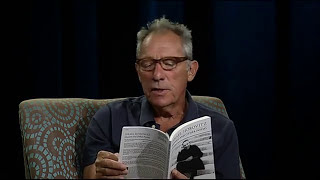





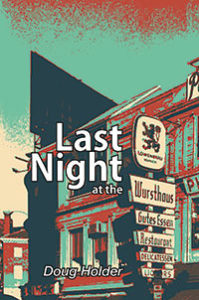


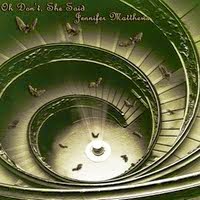

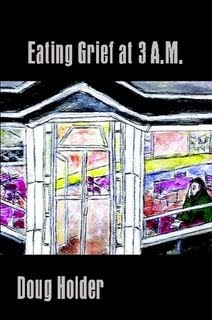
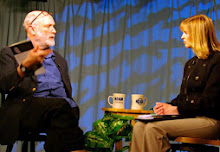
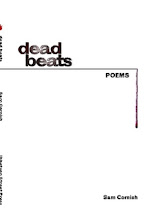










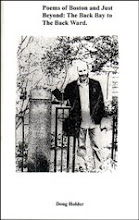





No comments:
Post a Comment